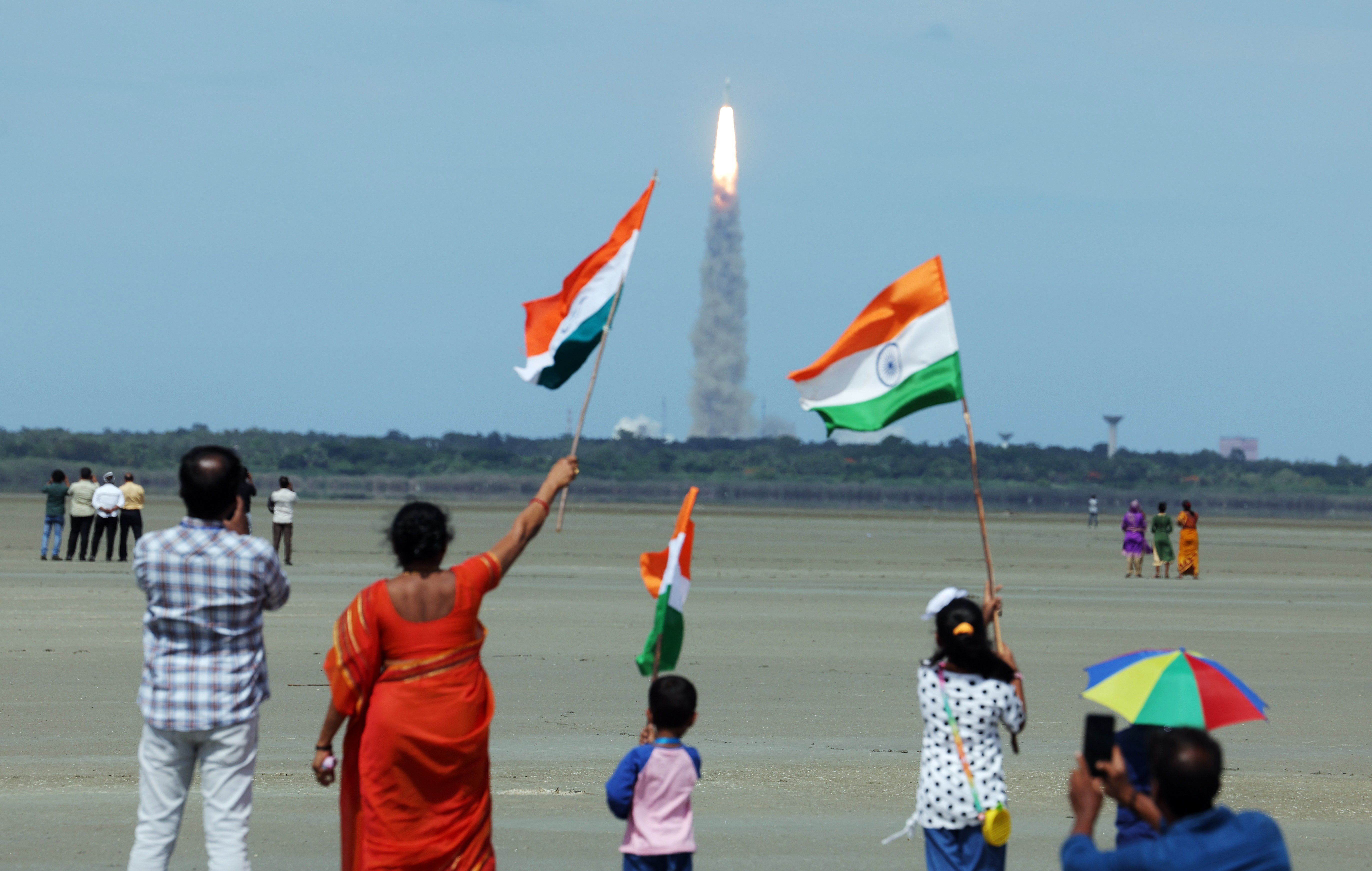Hard Numbers: India goes to the moon, Ukraine losing weapons, Biden forgives student debt, Iranian morality cops back
4: India on Friday launched a rocket to land a robotic rover on the moon, hoping to become only the fourth country to do after the US, China, and Russia. India wants to establish itself as a major space power by exploring the lunar South Pole — where no mission has ventured before — despite spending much less than others on its space program.
20: Ukraine's military reportedly lost 20% of weapons deployed in the first two weeks of its ongoing counteroffensive against Russian forces, according to US and UK estimates. Although it's still early days, Kyiv will need to up its game to show its Western allies that it can win back Russian-held territory in order to keep the arms and cash flowing.
39 billion: US President Joe Biden on Friday wiped out $39 billion in federal student debt for over 800,000 borrowers on income-driven repayment plans collected on behalf of the Department of Education. Two weeks ago, the Supreme Court struck down his more ambitious plan to cancel more than $400 billion in student debt without congressional authorization.
10: On Sunday, Iran announced that the notorious morality police would return to the streets in full force 10 months after the in-custody death of a woman detained for not wearing a headscarf triggered the biggest anti-regime protests in decades. The movement petered out after a harsh crackdown, and the decorum cops were never actually disbanded, but some women continue to defy the official dress code imposed by the mullahs.